- Home
- Brandon Sanderson
The Way of Kings sa-1
The Way of Kings sa-1 Read online
The Way of Kings
( Stormlight Archive - 1 )
Brandon Sanderson
Brandon Sanderson
The Way of Kings
Prelude to the Stormlight Archive
Kalak rounded a rocky stone ridge and stumbled to a stop before the body of a dying thunderclast. The enormous stone beast lay on its side, riblike protrusions from its chest broken and cracked. The monstrosity was vaguely skeletal in shape, with unnaturally long limbs that sprouted from granite shoulders. The eyes were deep red spots on the arrowhead face, as if created by a fire burning deep within the stone. They faded.
Even after all these centuries, seeing a thunderclast up close made Kalak shiver. The beast’s hand was as long as a man was tall. He’d been killed by hands like those before, and it hadn’t been pleasant.
Of course, dying rarely was.
He rounded the creature, picking his way more carefully across the battlefield. The plain was a place of misshapen rock and stone, natural pillars rising around him, bodies littering the ground. Few plants lived here.
The stone ridges and mounds bore numerous scars. Some were shattered, blasted-out sections where Surgebinders had fought. Less frequently, he passed cracked, oddly shaped hollows where thunderclasts had ripped themselves free of the stone to join the fray.
Many of the bodies around him were human; many were not. Blood mixed. Red. Orange. Violet. Though none of the bodies around him stirred, an indistinct haze of sounds hung in the air. Moans of pain, cries of grief. They did not seem like the sounds of victory. Smoke curled from the occasional patches of growth or heaps of burning corpses. Even some sections of rock smoldered. The Dustbringers had done their work well.
But I survived, Kalak thought, hand to breast as he hastened to the meeting place. I actually survived this time.
That was dangerous. When he died, he was sent back, no choice. When he survived the Desolation, he was supposed to go back as well. Back to that place that he dreaded. Back to that place of pain and fire. What if he just decided…not to go?
Perilous thoughts, perhaps traitorous thoughts. He hastened on his way.
The place of meeting was in the shadow of a large rock formation, a spire rising into the sky. As always, the ten of them had decided upon it before the battle. The survivors would make their way here. Oddly, only one of the others was waiting for him. Jezrien. Had the other eight all died? It was possible. The battle had been so furious this time, one of the worst. The enemy was growing increasingly tenacious.
But no. Kalak frowned as he stepped up to the base of the spire. Seven magnificent swords stood proudly here, driven point-first into the stone ground. Each was a masterly work of art, flowing in design, inscribed with glyphs and patterns. He recognized each one. If their masters had died, the Blades would have vanished.
These Blades were weapons of power beyond even Shardblades. These were unique. Precious. Jezrien stood outside the ring of swords, looking eastward.
“Jezrien?”
The figure in white and blue glanced toward him. Even after all these centuries, Jezrien looked young, like a man barely into his thirtieth year. His short black beard was neatly trimmed, though his once-fine clothing was scorched and stained with blood. He folded his arms behind his back as he turned to Kalak.
“What is this, Jezrien?” Kalak asked. “Where are the others?”
“Departed.” Jezrien’s voice was calm, deep, regal. Though he hadn’t worn a crown in centuries, his royal manner lingered. He always seemed to know what to do. “You might call it a miracle. Only one of us died this time.”
“Talenel,” Kalak said. His was the only Blade unaccounted for.
“Yes. He died holding that passage by the northern waterway.”
Kalak nodded. Taln had a tendency to choose seemingly hopeless fights and win them. He also had a tendency to die in the process. He would be back now, in the place where they went between Desolations. The place of nightmares.
Kalak found himself shaking. When had he become so weak? “Jezrien, I can’t return this time.” Kalak whispered the words, stepping up and gripping the other man’s arm. “I can’t.”
Kalak felt something within him break at the admission. How long had it been? Centuries, perhaps millennia, of torture. It was so hard to keep track. Those fires, those hooks, digging into his flesh anew each day. Searing the skin off his arm, then burning the fat, then driving to the bone. He could smell it. Almighty, he could smell it!
“Leave your sword,” Jezrien said.
“What?”
Jezrien nodded to the ring of weapons. “I was chosen to wait for you. We weren’t certain if you had survived. A…a decision has been made. It is time for the Oathpact to end.”
Kalak felt a sharp stab of horror. “What will that do?”
“Ishar believes that so long as there is one of us still bound to the Oathpact, it may be enough. There is a chance we might end the cycle of Desolations.”
Kalak looked into the immortal king’s eyes. Black smoke rose from a small patch to their left. Groans of the dying haunted them from behind. There, in Jezrien’s eyes, Kalak saw anguish and grief. Perhaps even cowardice. This was a man hanging from a cliff by a thread.
Almighty above, Kalak thought. You’re broken too, aren’t you? They all were.
Kalak turned and walked to the side, where a low ridge overlooked part of the battlefield.
There were so many corpses, and among them walked the living. Men in primitive wraps, carrying spears topped by bronze heads. Juxtaposed between them were others in gleaming plate armor. One group walked past, four men in their ragged tanned skins or shoddy leather joining a powerful figure in beautiful silver plate, amazingly intricate. Such a contrast.
Jezrien stepped up beside him.
“They see us as divinities,” Kalak whispered. “They rely upon us, Jezrien. We’re all that they have.”
“They have the Radiants. That will be enough.”
Kalak shook his head. “He will not remain bound by this. The enemy. He will find a way around it. You know he will.”
“Perhaps.” The king of Heralds offered no further explanation.
“And Taln?” Kalak asked. The flesh burning. The fires. The pain over and over and over…
“Better that one man should suffer than ten,” Jezrien whispered. He seemed so cold. Like a shadow caused by heat and light falling on someone honorable and true, casting this black imitation behind.
Jezrien walked back to the ring of swords. His own Blade formed in his hands, appearing from mist, wet with condensation. “It has been decided, Kalak. We will go our ways, and we will not seek out one another. Our Blades must be left. The Oathpact ends now.” He lifted his sword and rammed it into the stone with the other seven.
Jezrien hesitated, looking at the sword, then bowed his head and turned away. As if ashamed. “We chose this burden willingly. Well, we can choose to drop it if we wish.”
“What do we tell the people, Jezrien?” Kalak asked. “What will they say of this day?”
“It’s simple,” Jezrien said, walking away. “We tell them that they finally won. It’s an easy enough lie. Who knows? Maybe it will turn out to be true.”
Kalak watched Jezrien depart across the burned landscape. Finally, he summoned his own Blade and slammed it into the stone beside the other eight. He turned and walked in the direction opposite from Jezrien.
And yet, he could not help glancing back at the ring of swords and the single open spot. The place where the tenth sword should have gone.
The one of them who was lost. The one they had abandoned.
Forgive us, Kalak thought, then left.
Map of Alethkar and surroundings, created
by His Majesty Gavilar Kholin’s royal surveyors, circa 1167.
Prologue
To kill
“The love of men is a frigid thing, a mountain stream only three steps from the ice. We are his. Oh Stormfather…we are his. It is but a thousand days, and the Everstorm comes.”
— Collected on the first day of the week Palah of the month Shash of the year 1171, thirty-one seconds before death. Subject was a darkeyed pregnant woman of middle years. The child did not survive.
Szeth-son-son-Vallano, Truthless of Shinovar, wore white on the day he was to kill a king. The white clothing was a Parshendi tradition, foreign to him. But he did as his masters required and did not ask for an explanation.
He sat in a large stone room, baked by enormous firepits that cast a garish light upon the revelers, causing beads of sweat to form on their skin as they danced, and drank, and yelled, and sang, and clapped. Some fell to the ground red-faced, the revelry too much for them, their stomachs proving to be inferior wineskins. They looked as if they were dead, at least until their friends carried them out of the feast hall to waiting beds.
Szeth did not sway to the drums, drink the sapphire wine, or stand to dance. He sat on a bench at the back, a still servant in white robes. Few at the treaty-signing celebration noticed him. He was just a servant, and Shin were easy to ignore. Most out here in the East thought Szeth’s kind were docile and harmless. They were generally right.
The drummers began a new rhythm. The beats shook Szeth like a quartet of thumping hearts, pumping waves of invisible blood through the room. Szeth’s masters-who were dismissed as savages by those in more civilized kingdoms-sat at their own tables. They were men with skin of black marbled with red. Parshendi, they were named-cousins to the more docile servant peoples known as parshmen in most of the world. An oddity. They did not call themselves Parshendi; this was the Alethi name for them. It meant, roughly, “parshmen who can think.” Neither side seemed to see that as an insult.
The Parshendi had brought the musicians. At first, the Alethi lighteyes had been hesitant. To them, drums were base instruments of the common, darkeyed people. But wine was the great assassin of both tradition and propriety, and now the Alethi elite danced with abandon.
Szeth stood and began to pick his way through the room. The revelry had lasted long; even the king had retired hours ago. But many still celebrated. As he walked, Szeth was forced to step around Dalinar Kholin-the king’s own brother-who slumped drunken at a small table. The aging but powerfully built man kept waving away those who tried to encourage him to bed. Where was Jasnah, the king’s daughter? Elhokar, the king’s son and heir, sat at the high table, ruling the feast in his father’s absence. He was in conversation with two men, a dark-skinned Azish man who had an odd patch of pale skin on his cheek and a thinner, Alethi-looking man who kept glancing over his shoulder.
The heir’s feasting companions were unimportant. Szeth stayed far from the heir, skirting the sides of the room, passing the drummers. Musicspren zipped through the air around them, the tiny spirits taking the form of spinning translucent ribbons. As Szeth passed the drummers, they noted him. They would withdraw soon, along with all of the other Parshendi.
They did not seem offended. They did not seem angry. And yet they were going to break their treaty of only a few hours. It made no sense. But Szeth did not ask questions.
At the edge of the room, he passed rows of unwavering azure lights that bulged out where wall met floor. They held sapphires infused with Stormlight. Profane. How could the men of these lands use something so sacred for mere illumination? Worse, the Alethi scholars were said to be close to creating new Shardblades. Szeth hoped that was just wishful boasting. For if it did happen, the world would be changed. Likely in a way that ended with people in all countries-from distant Thaylenah to towering Jah Keved-speaking Alethi to their children.
They were a grand people, these Alethi. Even drunk, there was a natural nobility to them. Tall and well made, the men dressed in dark silk coats that buttoned down the sides of the chest and were elaborately embroidered in silver or gold. Each one looked a general on the field.
The women were even more splendid. They wore grand silk dresses, tightly fitted, the bright colors a contrast to the dark tones favored by the men. The left sleeve of each dress was longer than the right one, covering the hand. Alethi had an odd sense of propriety.
Their pure black hair was pinned up atop their heads, either in intricate weavings of braids or in loose piles. It was often woven with gold ribbons or ornaments, along with gems that glowed with Stormlight. Beautiful. Profane, but beautiful.
Szeth left the feasting chamber behind. Just outside, he passed the doorway into the Beggars’ Feast. It was an Alethi tradition, a room where some of the poorest men and women in the city were given a feast complementing that of the king and his guests. A man with a long grey and black beard slumped in the doorway, smiling foolishly-though whether from wine or a weak mind, Szeth could not tell.
“Have you seen me?” the man asked with slurred speech. He laughed, then began to speak in gibberish, reaching for a wineskin. So it was drink after all. Szeth brushed by, continuing past a line of statues depicting the Ten Heralds from ancient Vorin theology. Jezerezeh, Ishi, Kelek, Talenelat. He counted off each one, and realized there were only nine here. One was conspicuously missing. Why had Shalash’s statue been removed? King Gavilar was said to be very devout in his Vorin worship. Too devout, by some people’s standards.
The hallway here curved to the right, running around the perimeter of the domed palace. They were on the king’s floor, two levels up, surrounded by rock walls, ceiling, and floor. That was profane. Stone was not to be trod upon. But what was he to do? He was Truthless. He did as his masters demanded.
Today, that included wearing white. Loose white trousers tied at the waist with a rope, and over them a filmy shirt with long sleeves, open at the front. White clothing for a killer was a tradition among the Parshendi. Although Szeth had not asked, his masters had explained why.
White to be bold. White to not blend into the night. White to give warning.
For if you were going to assassinate a man, he was entitled to see you coming.
Szeth turned right, taking the hallway directly toward the king’s chambers. Torches burned on the walls, their light unsatisfying to him, a meal of thin broth after a long fast. Tiny flamespren danced around them, like insects made solely of congealed light. The torches were useless to him. He reached for his pouch and the spheres it contained, but then hesitated when he saw more of the blue lights ahead: a pair of Stormlight lamps hanging on the wall, brilliant sapphires glowing at their hearts. Szeth walked up to one of these, holding out his hand to cup it around the glass-shrouded gemstone.
“You there!” a voice called in Alethi. There were two guards at the intersection. Double guard, for there were savages abroad in Kholinar this night. True, those savages were supposed to be allies now. But alliances could be shallow things indeed.
This one wouldn’t last the hour.
Szeth looked as the two guards approached. They carried spears; they weren’t lighteyes, and were therefore forbidden the sword. Their painted red breastplates were ornate, however, as were their helms. They might be darkeyed, but they were high-ranking citizens with honored positions in the royal guard.
Stopping a few feet away, the guard at the front gestured with his spear. “Go on, now. This is no place for you.” He had tan Alethi skin and a thin mustache that ran all the way around his mouth, becoming a beard at the bottom.
Szeth didn’t move.
“Well?” the guard said. “What are you waiting for?”
Szeth breathed in deeply, drawing forth the Stormlight. It streamed into him, siphoned from the twin sapphire lamps on the walls, sucked in as if by his deep inhalation. The Stormlight raged inside of him, and the hallway suddenly grew darker, falling into shade like a hilltop cut off from the sun by a transient cloud.
Szeth c
ould feel the Light’s warmth, its fury, like a tempest that had been injected directly into his veins. The power of it was invigorating but dangerous. It pushed him to act. To move. To strike.
Holding his breath, he clung to the Stormlight. He could still feel it leaking out. Stormlight could be held for only a short time, a few minutes at most. It leaked away, the human body too porous a container. He had heard that the Voidbringers could hold it in perfectly. But, then, did they even exist? His punishment declared that they didn’t. His honor demanded that they did.
Afire with holy energy, Szeth turned to the guards. They could see that he was leaking Stormlight, wisps of it curling from his skin like luminescent smoke. The lead guard squinted, frowning. Szeth was sure the man had never seen anything like it before. As far as he knew, Szeth had killed every stonewalker who had ever seen what he could do.
“What…what are you?” The guard’s voice had lost its certainty. “Spirit or man?”
“What am I?” Szeth whispered, a bit of Light leaking from his lips as he looked past the man down the long hallway. “I’m…sorry.”
Szeth blinked, Lashing himself to that distant point down the hallway. Stormlight raged from him in a flash, chilling his skin, and the ground immediately stopped pulling him downward. Instead, he was pulled toward that distant point-it was as if, to him, that direction had suddenly become down.
This was a Basic Lashing, first of his three kinds of Lashings. It gave him the ability to manipulate whatever force, spren, or god it was that held men to the ground. With this Lashing, he could bind people or objects to different surfaces or in different directions.
From Szeth’s perspective, the hallway was now a deep shaft down which he was falling, and the two guards stood on one of the sides. They were shocked when Szeth’s feet hit them, one for each face, throwing them over. Szeth shifted his view and Lashed himself to the floor. Light leaked from him. The floor of the hallway again became down, and he landed between the two guards, clothes crackling and dropping flakes of frost. He rose, beginning the process of summoning his Shardblade.

 Steelheart
Steelheart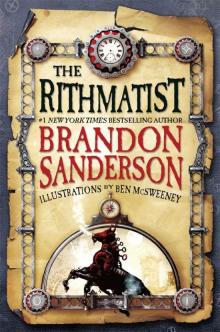 The Rithmatist
The Rithmatist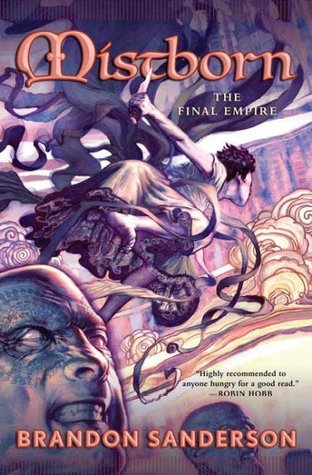 Mistborn: The Final Empire
Mistborn: The Final Empire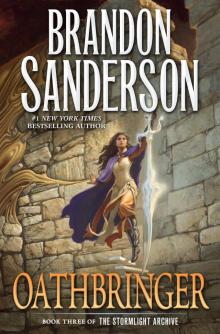 Oathbringer
Oathbringer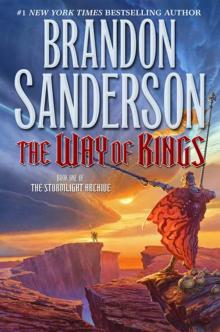 The Way of Kings
The Way of Kings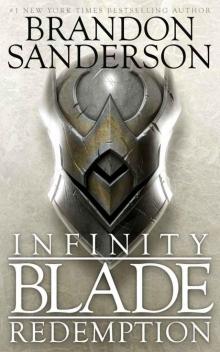 Redemption
Redemption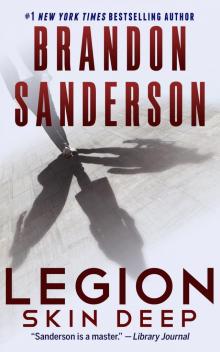 Skin Deep
Skin Deep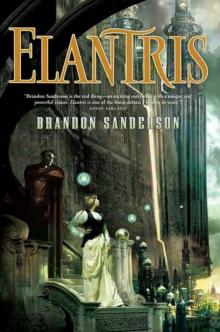 Elantris
Elantris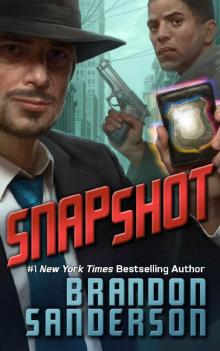 Snapshot
Snapshot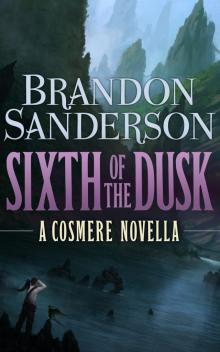 Sixth of the Dusk (Cosmere)
Sixth of the Dusk (Cosmere)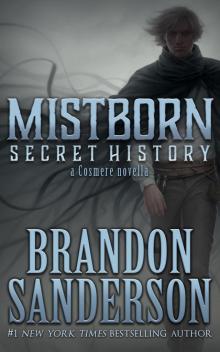 Mistborn: Secret History
Mistborn: Secret History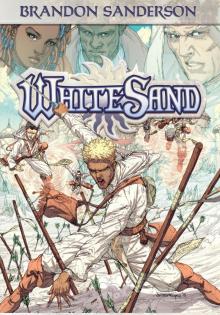 White Sand, Volume 1
White Sand, Volume 1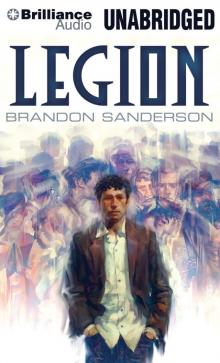 Legion
Legion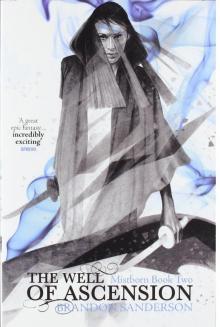 The Well of Ascension
The Well of Ascension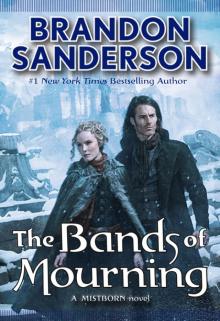 The Bands of Mourning
The Bands of Mourning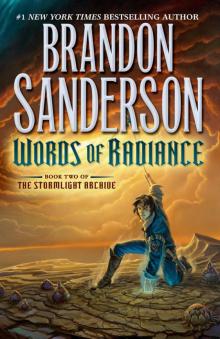 Words of Radiance
Words of Radiance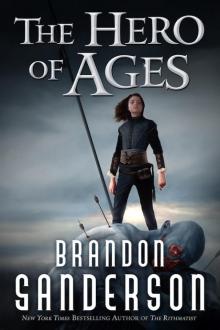 The Hero of Ages
The Hero of Ages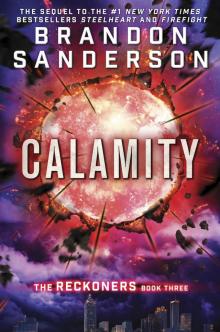 Calamity
Calamity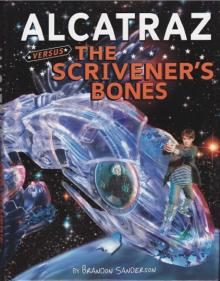 Alcatraz Versus the Scrivener's Bones
Alcatraz Versus the Scrivener's Bones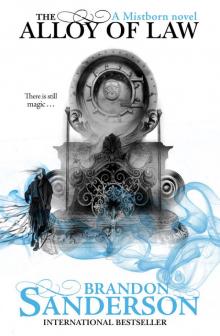 The Alloy of Law
The Alloy of Law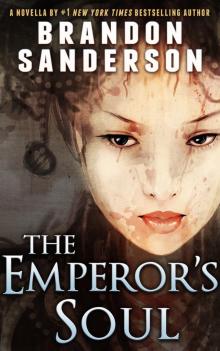 The Emperors Soul
The Emperors Soul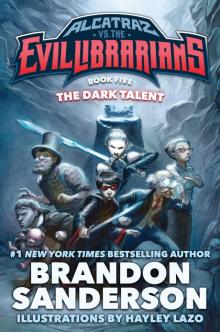 The Dark Talent
The Dark Talent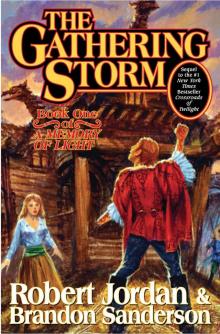 The Gathering Storm
The Gathering Storm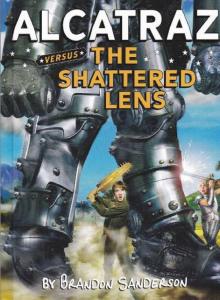 Alcatraz Versus the Shattered Lens
Alcatraz Versus the Shattered Lens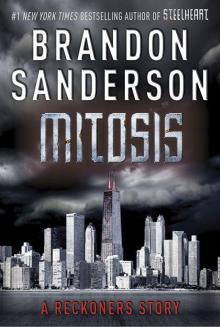 Mitosis
Mitosis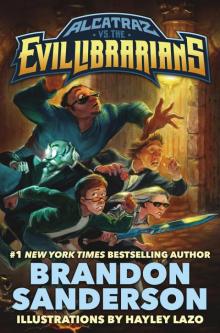 Alcatraz vs. The Evil Librarians
Alcatraz vs. The Evil Librarians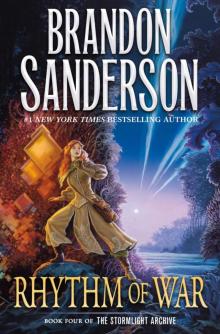 Rhythm of War (9781429952040)
Rhythm of War (9781429952040)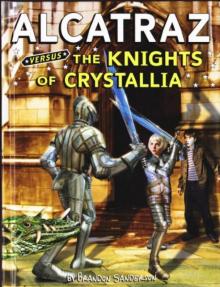 Alcatraz Versus the Knights of Crystallia
Alcatraz Versus the Knights of Crystallia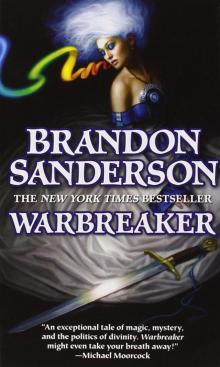 Warbreaker
Warbreaker Firstborn
Firstborn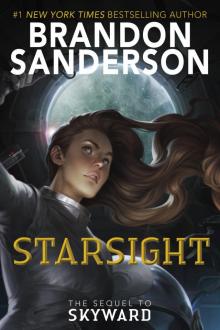 Starsight
Starsight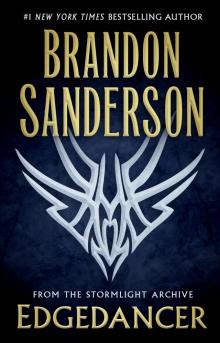 Edgedancer
Edgedancer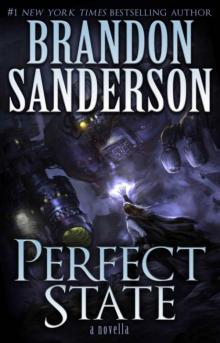 Perfect State
Perfect State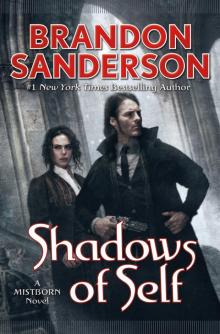 Shadows of Self
Shadows of Self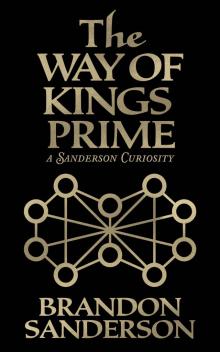 The Way of Kings Prime
The Way of Kings Prime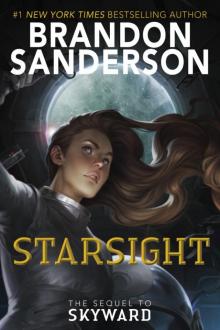 Starsight (US)
Starsight (US)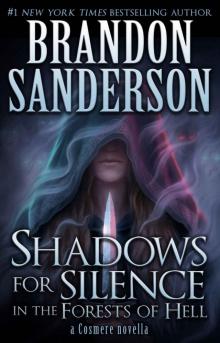 Shadows for Silence in the Forests of Hell
Shadows for Silence in the Forests of Hell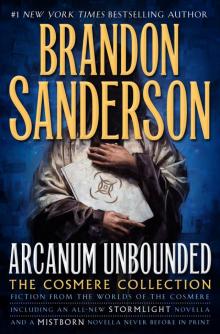 Arcanum Unbounded: The Cosmere Collection
Arcanum Unbounded: The Cosmere Collection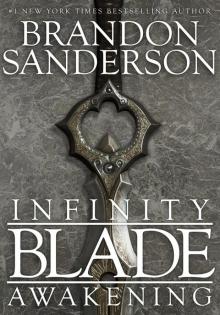 Awakening
Awakening Firefight
Firefight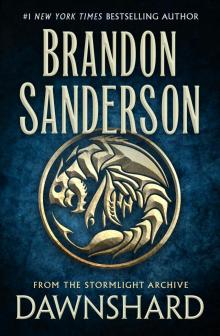 Dawnshard
Dawnshard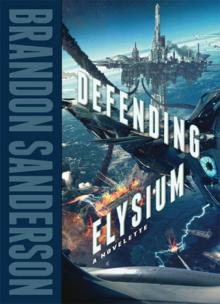 Defending Elysium
Defending Elysium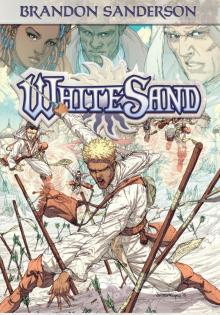 White Sand
White Sand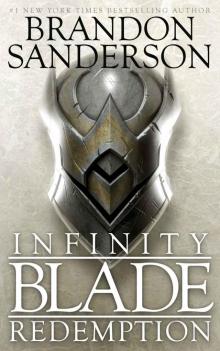 Infinity Blade: Redemption
Infinity Blade: Redemption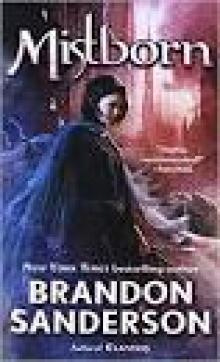 The Final Empire
The Final Empire Skyward
Skyward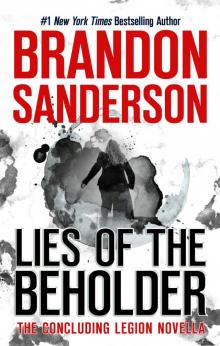 Lies of the Beholder
Lies of the Beholder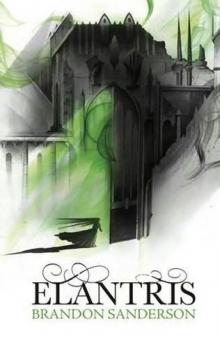 Elantris e-1
Elantris e-1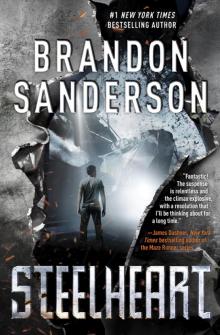 Steelheart r-1
Steelheart r-1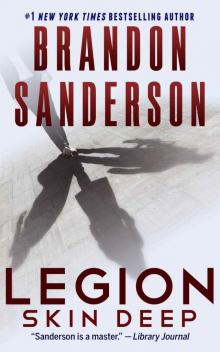 Legion: Skin Deep
Legion: Skin Deep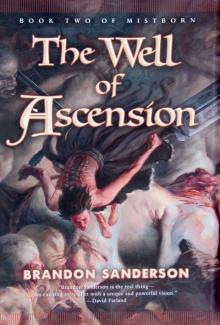 Well of Ascension
Well of Ascension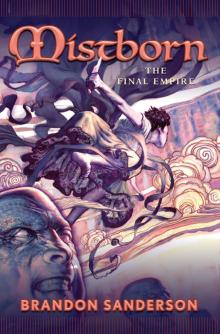 Mistborn
Mistborn Alcatraz versus the Evil Librarians
Alcatraz versus the Evil Librarians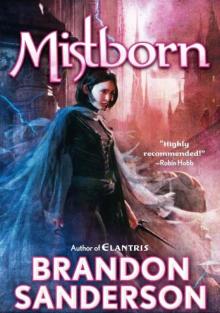 The Final Empire m-1
The Final Empire m-1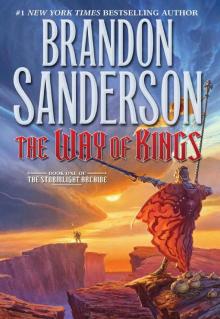 The Way of Kings (Stormlight Archive, The)
The Way of Kings (Stormlight Archive, The)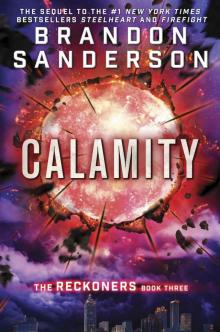 Calamity (The Reckoners)
Calamity (The Reckoners)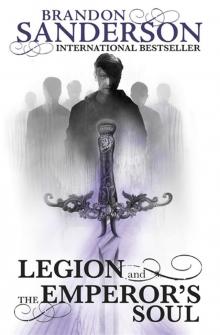 Legion and the Emperor's Soul
Legion and the Emperor's Soul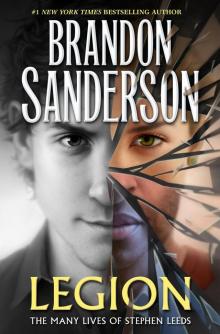 Legion: The Many Lives of Stephen Leeds
Legion: The Many Lives of Stephen Leeds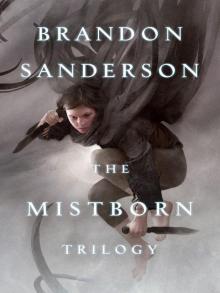 The Mistborn Trilogy
The Mistborn Trilogy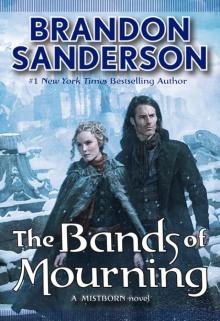 Bands of Mourning
Bands of Mourning Alcatraz
Alcatraz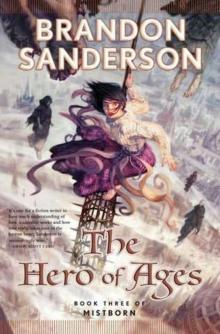 The Hero of Ages m-3
The Hero of Ages m-3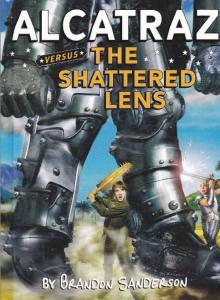 Alcatraz vs. the Shattered Lens
Alcatraz vs. the Shattered Lens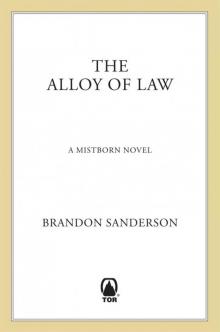 The Alloy of Law: A Mistborn Novel
The Alloy of Law: A Mistborn Novel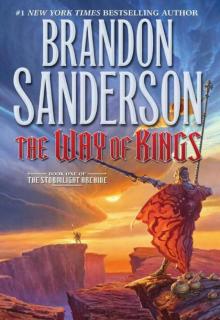 The Way of Kings sa-1
The Way of Kings sa-1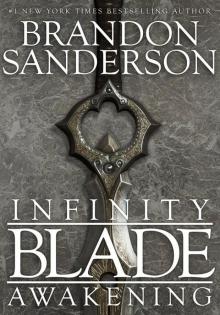 Infinity Blade: Awakening
Infinity Blade: Awakening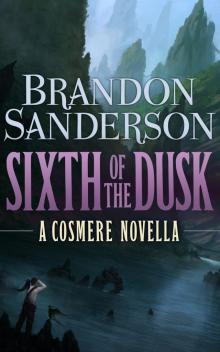 Sixth of the Dusk
Sixth of the Dusk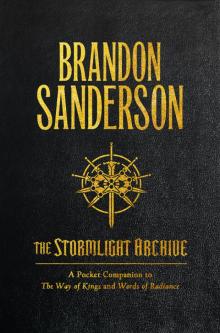 The Stormlight Archive
The Stormlight Archive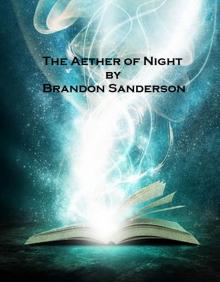 The Aether of Night
The Aether of Night